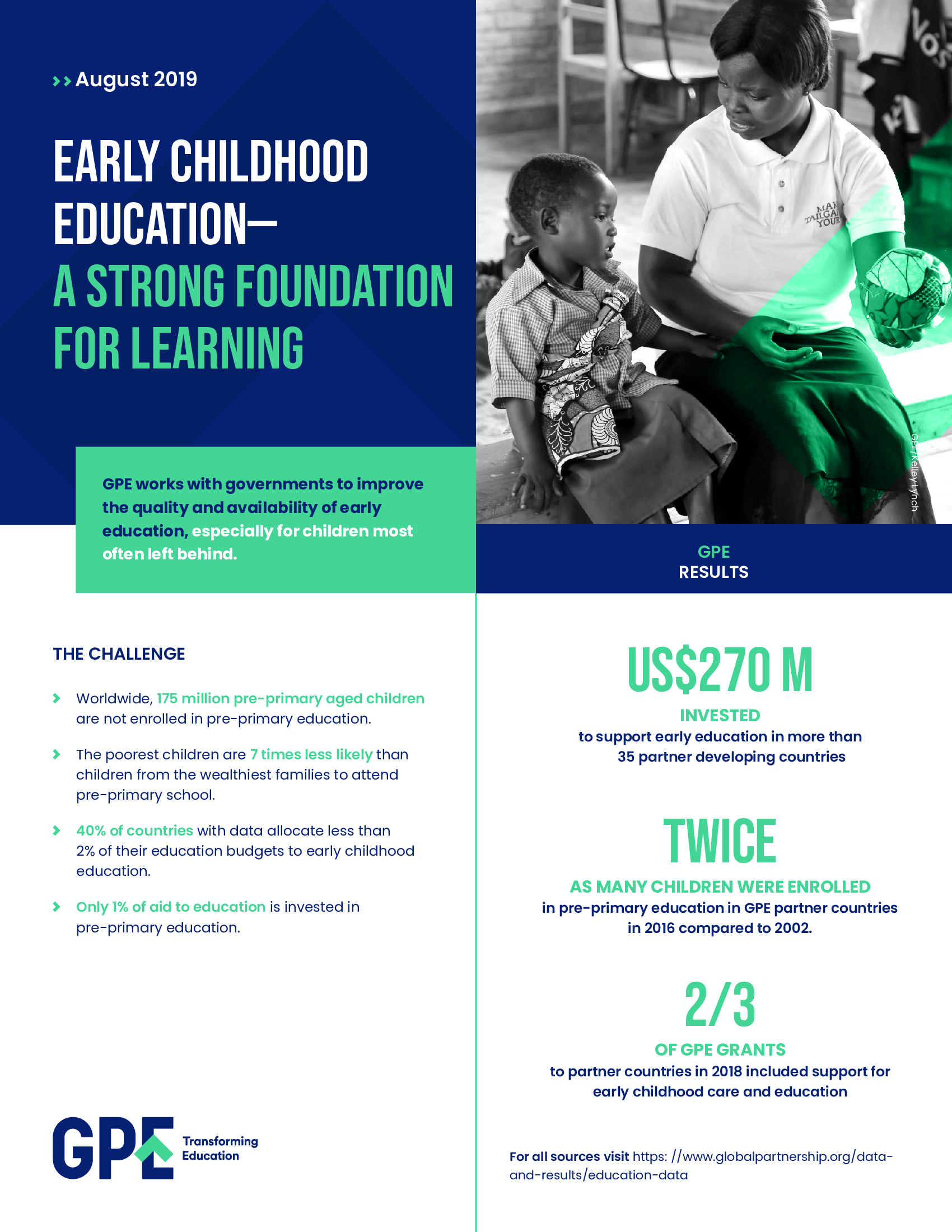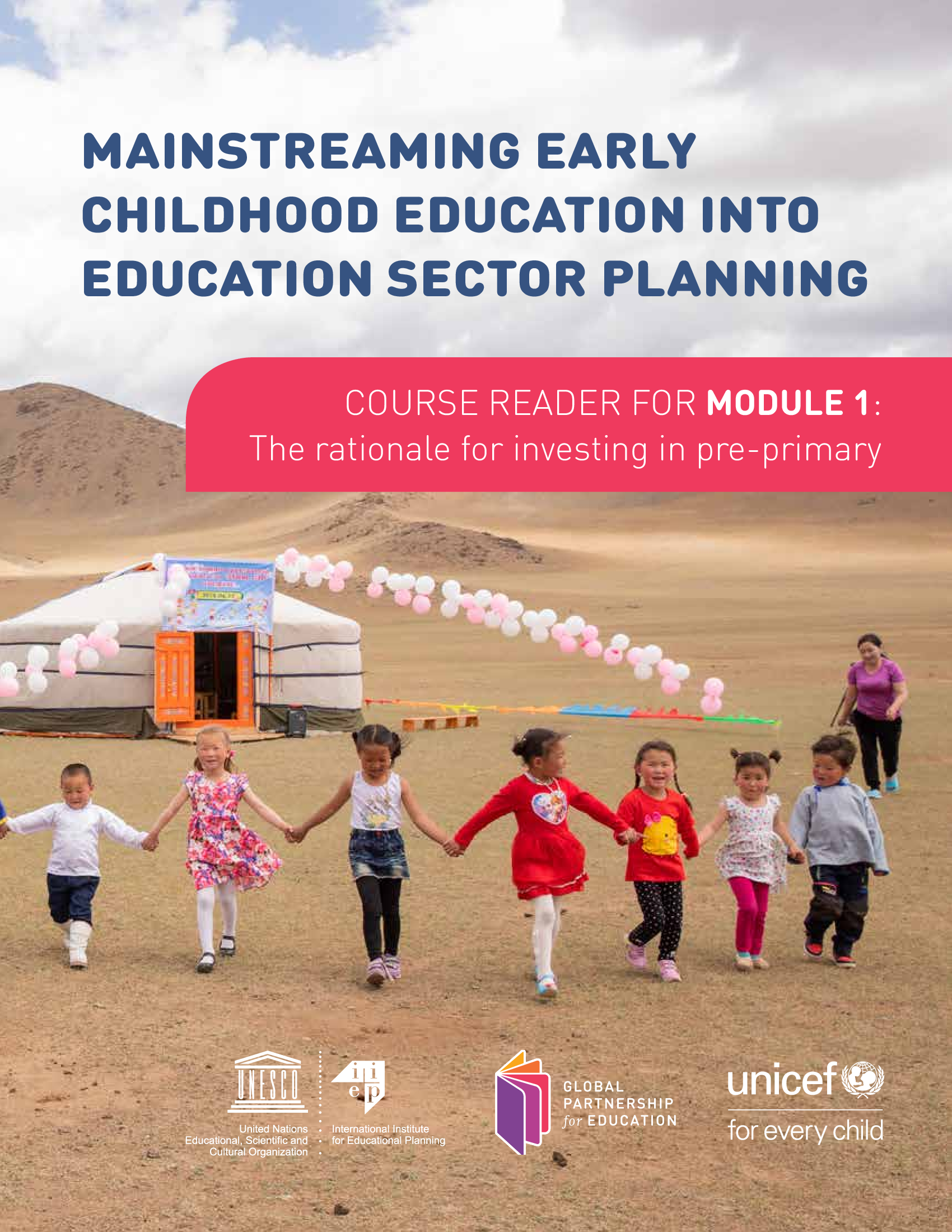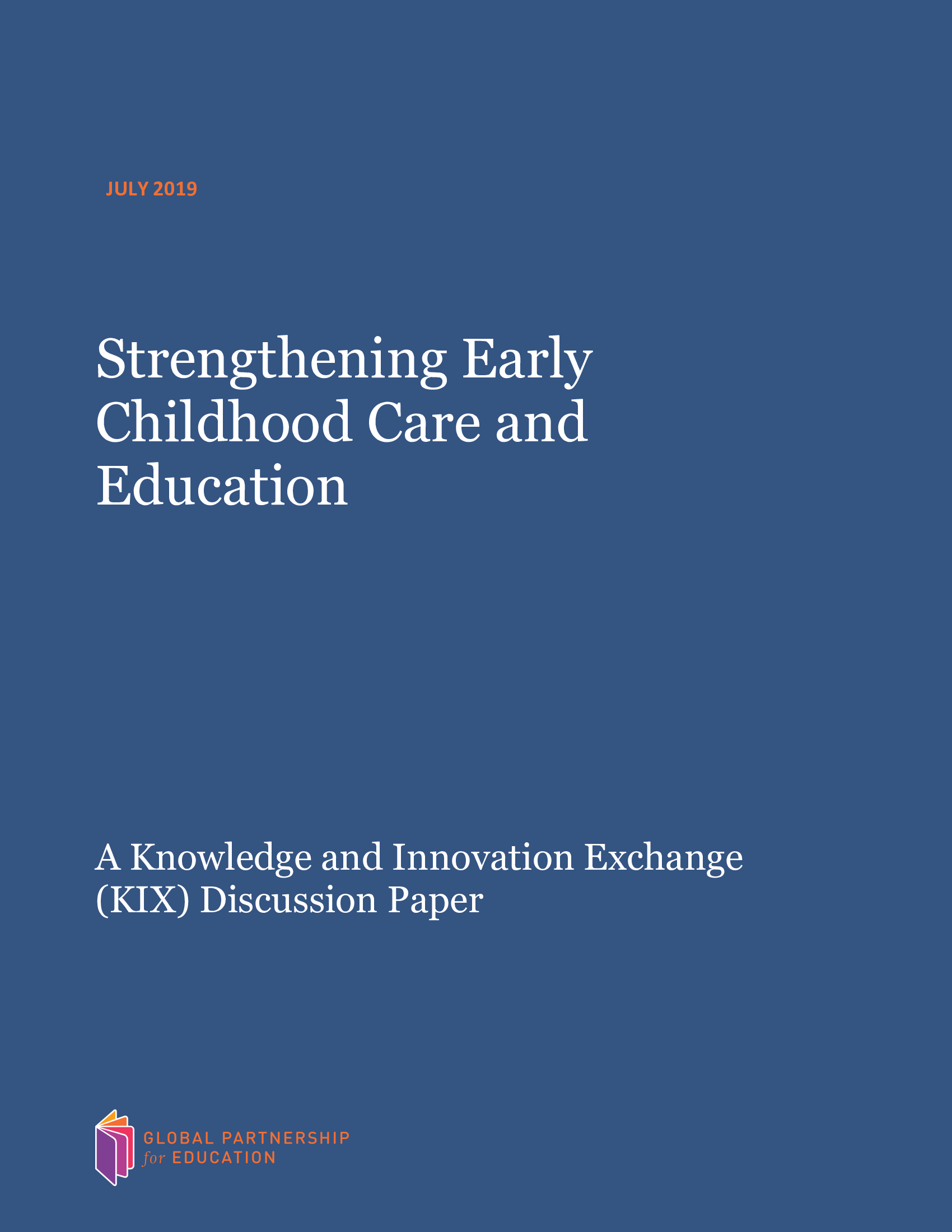Our results
GPE in action
GPE’s strategic plan incentivizes countries to ensure all children have access to at least one year of quality pre-primary education.
GPE supports governments to improve access to quality early learning opportunities by:
Supporting ECE sector planning and analysis: GPE strengthens countries’ capacity to effectively plan, develop and implement quality ECE programs.
- This includes a free online course with UNESCO-IIEP and UNICEF on Mainstreaming early childhood education into education sector planning and in-country as well as cross-country capacity building for 4 pilot countries with UNICEF under the BELDS (Better Early Learning and Development at Scale) initiative.
- Under the BELDS initiative, GPE and UNICEF developed the ECE Accelerator Analysis and Planning Toolkit, a free online resource with interactive tools to build national capacity for sector planning and budgeting for ECE. The ECE Accelerator includes interactive and customizable tools with illustrative country case studies and examples to show how resources have been applied in a variety of contexts.
- KIX is financing global and regional research related to scaling alternate models for ECE. Several other KIX grants are supporting early learning, making it one of the largest areas of focus under KIX.
Mobilizing and delivering funding: Through its grants, GPE supports increased financing to ECE in partner countries and promotes domestic and international investments in ECE across the partnership. ECE components in GPE grants can go up to more than US$35 million.
Expanding ECE enrollment: GPE supports partner countries' initiatives to launch new laws, policies, public awareness campaigns and financial incentives to increase the number of children in pre-primary education.
Better Early Learning and Development at Scale - BELDS
GPE and UNICEF joined forces under the BELDS Initiative to strengthen countries’ capacity to effectively plan, develop, and implement quality ECE programs at scale. BELDS was funded by GPE with support from the Open Society Foundation, Comic Relief, Hilton Foundation and Dubai Cares. A scale-up of the BELDS work financed by a KIX global grant is now underway.
- 4 partner countries engaged in capacity building activities in 2019-2020: Kyrgyz Republic, Ghana, Lesotho, and Sao Tome and Principe. Under KIX, BELDS capacity building activities are continuing in Kyrgyz Republic and Lesotho and also include Sierra Leone, South Sudan, and Tajikistan.
- Through BELDS, the ECE Accelerator toolkit was developed and launched.
- Cross-country peer learning and exchanges promote best practices, lessons learned, and collaboration between countries.
- Along with UNESCO, UNICEF, and the International Institute for Educational Planning (IIEP-UNESCO), GPE developed an online course - Mainstreaming early childhood education into education sector planning. The course and corresponding materials offer an introduction to the concepts, processes and tools countries need to ensure that pre-primary education is successfully mainstreamed into their education planning cycle.
An independent evaluation of BELDS found it successful in equipping ministries with capacity, knowledge and resources to mainstream ECE and in raising the profile of early childhood education in sector plans and policies.
By first identifying capacity gaps in initial diagnostic workshops and then developing customized capacity building activities, BELDS allowed for flexibility to respond to country needs and opportunities.


